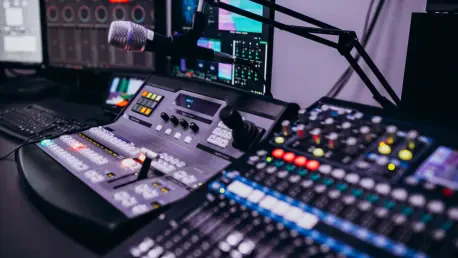Amid increasing concerns over media monopolization and diminishing local news resources, a new bill promises to reverse recent setbacks in community television funding. Democratic Senators Edward J. Markey and Tammy Baldwin, alongside Representative Troy A. Carter Sr., have introduced the Protecting Community Television Act to the U.S. Congress. The legislation seeks to counteract a Trump-era FCC rule that affects financial support for public, educational, and governmental (PEG) channels. These channels play a crucial role in providing communities with access to transparent governance, localized educational programming, and essential news services.
Highlights from the Legislative Introduction
During the introduction of the bill, legislators emphasized its significance in maintaining community resources amidst challenges posed by previous regulations. The prior FCC rule counted non-cash contributions towards cable companies’ franchise fee revenues, thereby limiting funds directly available to PEG channels. As a result, many communities found themselves in a bind, choosing between supporting these vital stations and funding other essential services.
At the forefront of legislative discussions, Democratic leaders underscored the detrimental impact of media consolidation on public discourse. High-profile figures such as Chuck Schumer, Bernie Sanders, and Elizabeth Warren have thrown their weight behind the bill, stressing the need for diverse media voices in fostering democratic dialogue. The Act aspires not only to restore financial stability for community channels but also to highlight their role as primary connectors between citizens and local happenings.
Strategic Insights and Expert Perspectives
Throughout panel discussions, strategic insights emerged regarding the bipartisan support necessary for the bill’s passage. Experts acknowledged potential resistance but pointed to a shared understanding across political aisles of the importance of localized media. This shared understanding could pave the way for collaborative legislative efforts.
Additionally, experts voiced concerns about media centralization and its implications for community involvement. Policy analysts provided perspectives on how the proposed legislation might reshape local media landscapes, suggesting a move toward enhanced engagement and communication between communities and their respective governing bodies.
Engaging the Public through Workshops and Technology
In an effort to further educate and engage the public, stakeholders organized various workshops and interactive activities aimed at rallying support for the legislation. These initiatives fostered a deeper understanding of the bill’s implications, creating an open dialogue between communities and policymakers. Such interactions encouraged advocacy and highlighted the role that informed citizens play in the legislative process.
Technological advancements also took the spotlight with exhibitions showcasing innovations designed to improve the accessibility and relevance of community TV stations. Demonstrations included new broadcasting tools that could transform local television by making it more easily accessible, thereby expanding audiences and enhancing community interaction.
Reflecting on the Bill’s Broader Impact
In conclusion, the Protecting Community Television Act holds promise for a future where community voices are more pronounced and accessible. This legislative push might reshape media policies, serving as a counter to ongoing trends in media consolidation. As communities grapple with evolving media landscapes, the Act offers a pathway toward enhanced civic participation and public engagement. The new legislation has the potential to secure the future of localized media, ensuring its continued role in supporting democratic principles and informed citizenry.









